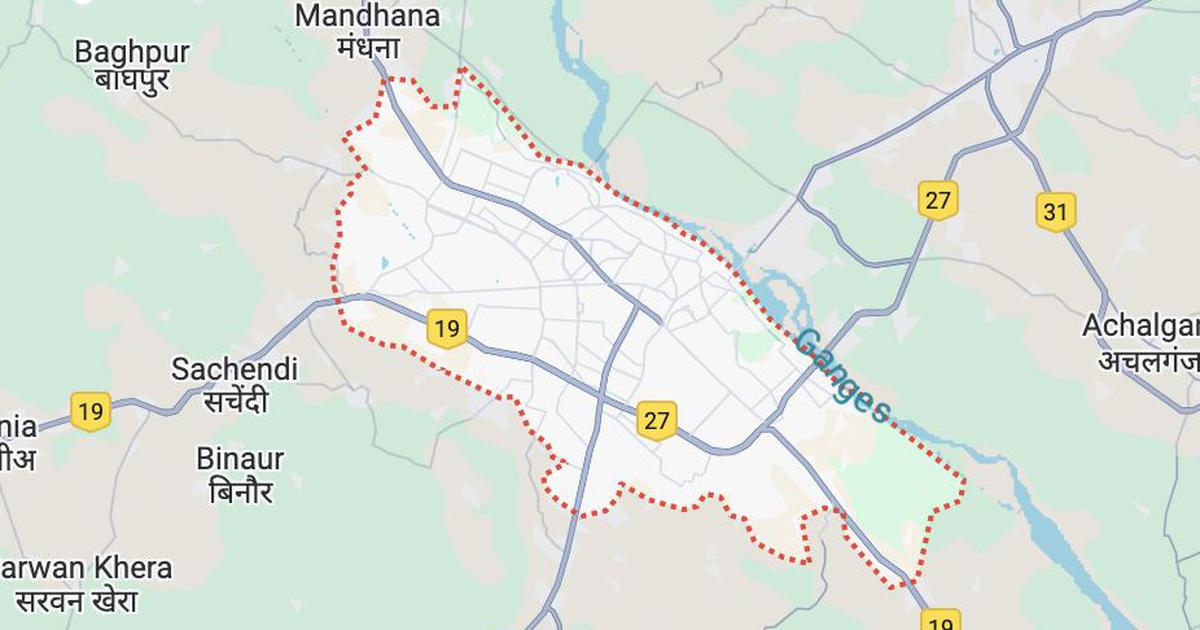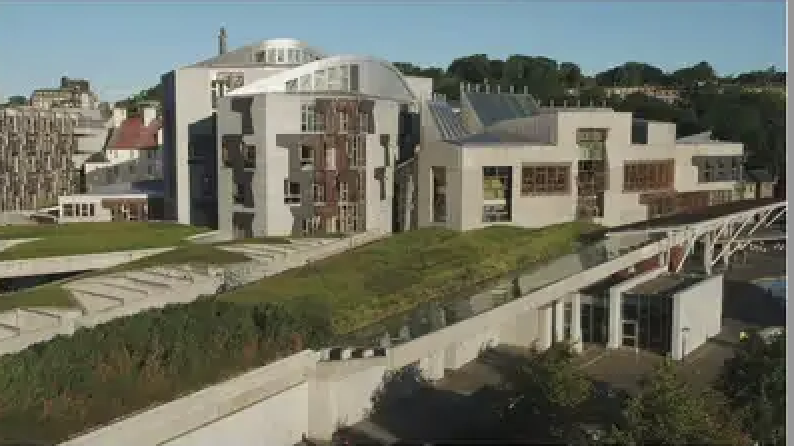
Over a year ago, Masrat Zahra, a 28-year-old photojournalist from Srinagar, Kashmir found her photo on a poster of a militant outfit for “last warning.” She left the Valley to escape threats but the past continues to haunt her.
Ten months ago, Zahra flew to Germany in March on an invitation of the Hamburg Foundation, a non-governmental organisation that invites politically persecuted people for a year-long program, however, it failed to help her mental wellbeing.
“I thought that being in Germany will help me to come out from the mental stress, however, it didn’t,” she said. “I want to go back [Kashmir] but the situation is not favorable, considering what’s still happening there.”
On 1 January 2022, the photojournalist tweeted that her family is being routinely harassed by the authorities in Kashmir.
“I cannot keep overlooking it and just uselessly hope for it to end. I am worried about the safety of my family… my family has been frequently pressured by the state authorities, asking my whereabouts and other information including, but not limited to, my photograph, Aadhar, and PAN details,” she said.
She further said that her family, who is unaware of “how the arbitrary systems work, is immensely worried as well.” “…this is causing me a great deal of anxiety. I am already grappling with the difficulties of living far away from my family and this is just making this worse.”
This, however, is not the first time Zahra took to the microblogging site, Twitter to voice her concerns for her family living 3416 miles away from her. Six months ago, she had a similar story to tell.
Zahra had alleged that the Jammu and Kashmir police had thrashed her parents in Srinagar. “High on power, cops of JKP thrashed my parents in Batamaloo today around 5 pm. Id card of my father has been taken away by cops and when my mother tried to intervene, she was also thrashed (sic),” she tweeted.
“One fails to understand how an elderly couple deserved this high-handed behavior of JKP. This is everyday life of Kashmiris. Are we in a police state? Is this how civilians are treated (sic)?”
After the police denied the allegations, Zahra posted pictures of her father’s bruised arms. “…one can clearly see his bruised arm. I didn’t want to post these pictures but yesterday’s police statement is ridiculous and they cannot thrash people in the day and at the end of day when questioned deny the thrashing,” she tweeted.
Shadows of past
On 29 December, Zahra received a call from her family. Her mother looked scared to her. The family was telling her about the calls they received from a local police station for her verification. “They [police] is asking for your picture and telling your father to visit the police station and give it to them,” she said.
“If they [police] want my picture they can get it from the internet. I feel there is something else,” she remembers telling her family.
Her father, Mohammad Amin Dar, received another phone call in the morning around 10:30 am and asked him about Zahra’s whereabouts, about her family and schooling. “Then he [Dar] was told to bring PAN card, Adhaar card, and Ration card but the family had told them [police] that all the documents were with me,” she said.
While speaking to Maktoob over the phone from Germany about the incident, Zahra said that it’s an intimidation. “You are away from home and you can’t do anything,” she said. “You feel helpless and all of this is frustrating.”
She believes the repeated “harassment and intimidation” with her family is to send a message to her and probably to all the journalists in Kashmir. “Maybe they are trying to say that they have the power to do anything even if we are away, they will target your family,” she said.
Although, Zahra is longing to return home and to be with her family she is uncertain about the decision. “I want to work there [as a journalist like earlier] but considering the situation [in Kashmir], they won’t let me and then I also won’t be able to come out of the [Valley],” she said.
For the past few years, journalists in Kashmir have increasingly been harassed, summoned, and intimidated. Many are not allowed to leave the country while some are frequently been arrested. Recently, Kashmir Walla’s trainee reporter Sajad Gul was arrested for a social media post and subsequently, booked under the draconian Public Safety Act (PSA) after he was granted bail. Gul was later sent to Kotbhalwal jail in Jammu.
In another incident, the Kashmir Press Club’s (KPC’s) re-registration was put on hold by the government of Jammu and Kashmir and took control of the premises.
Booked under anti-terror law
When the Valley was struck with the deadliest pandemic in 2020, Kashmir faced another phase of lockdown after the months-long clampdown due to the abrogation of Jammu and Kashmir’s limited autonomy in August 2019. Like many Kashmiris, Zahra chose to stay at home to save herself and her family from the infection.
During her time indoors, she started posting archives of her work – published and unpublished – till she received a phone call from Cyber Police Station (CPS) around 4:30 pm. ‘Come to CPS,’ someone on the other side of the phone had told her. “I got scared as I realized something was wrong,” she said.
As the COVID-19 curfew was imposed in the Valley, Zahra denied it by saying that she doesn’t have a curfew pass. “I was then told by some of my colleagues that everything has been sorted and I no longer need to go there [CPS],” she said.
Her well-wishers had suggested Zahra to not post anything on social media but she didn’t stop. “I thought they [government] were trying to silence me. And I was only doing my job being a photojournalist,” she said. “I posted photos of the reality, the actual situation of Kashmir and nothing else.”
A day after the call, a journalist friend from outside the Valley had sent her a post that read that Zahra was booked under an anti-terror law, Unlawful Activities (Prevention) Act (UAPA). Back then, Zahra didn’t know what UAPA was till she spent an entire night asking her friends and googling about it, anxiously. “I was only scared for my family. I didn’t know what was happening with me and why?” she said.
That night she kept sending texts to her friends but no one responded. “Everyone was sleeping,” she said. “Then I thought that it was my last night in my room.”
She was booked under UAPA for “uploading anti-national posts with criminal intention to induce the youth and to promote offences against public tranquility.” However, she continues to say that she only used to post her work on social media. “It all used to be situational. I used to see something and click a picture of it and then post the same,” she said. “I never staged any photo. Then how was it wrong? Most of it was already published in different news publications.”
Her work has appeared in many national and international news organisations including The Washington Post, The Caravan, Al Jazeera, and The New Humanitarian.
The next morning, she received another call from CPS for presenting herself there. “I went there the next day. An investigation officer asked me about my social media posts and I said it was my work,” she said. Zahra remembers spending an hour in the police station.
At the same time, another Kashmiri journalist Gowhar Geelani was booked under the same law for a tweet while another First Information Report (FIR) was filed against the journalist Peerzada Ashiq of The Hindu for one of his articles.
In June 2020, Zahra became one of the award-winning photojournalists of the region. She received the Anja Niedringhaus Courage in Photojournalism Award by the International Women’s Media Foundation and the Peter Mackler Award for Courageous and Ethical Journalism in August 2020.
“But awards can’t help you to save your life,” she said.
Threat
Before she left for Germany, a poster surfaced on social media which was allegedly issued by a militant outfit, Hizbul Mujahideen. It read, “Among the Journalists on the Payroll of Indian Agencies.” But the outfit later issued a statement denying their role in releasing the poster.
“It was asked to take security by the government but I would have never taken it. I was a journalist, it was not right,” she said.
After the incident, she said, she was scared of being followed all the time and of being killed. “The same time Babar Qadri was assassinated. I had the feeling of being killed or arrested,” she said. “It’s the metal game that’s being played with journalists in Kashmir.”
In September 2020, Babar Qadri, a prominent lawyer, and human rights defender was shot dead at his residence in Srinagar’s Hawal area by two masked men. He was then rushed Sher-i-Kashmir Institute of Medical Sciences (SKIMS) hospital in Soura Srinagar, but he had succumbed.
Residing in the same area of Srinagar’s downtown Srinagar, Zahra was then more conscious of her movements outside her house. “I won’t return from the route that I used to take for the work,” she said. “I even used to check my scooty [for safety] before driving.”
However, the poster was not the first time when social media was buzzed with her name. In 2018, a social media post with her picture – that was showing her standing among armed government forces during a gunfight in south Kashmir – went viral that described her as a ‘collaborator’ of the forces.
Zahra was a student of Kashmir’s Central University’s journalism department. “I created my own space in journalism by working,” she said. “I covered stone-pelting in Nowhatta in 2017,” she said.
She left Kashmir for a year to help her mental wellbeing but Kashmir followed her. Zahra desperately wants to have a personal life. “But I am just a journalist now,” she concluded.
This story first appeared on maktoobmedia.com






